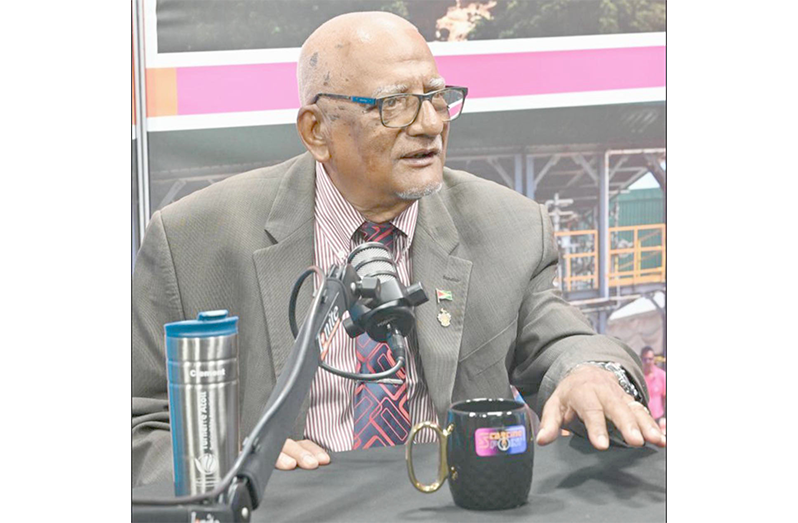-Professor Sankat notes, says GTTCI’s programme reshaping Guyana’s technical education landscape
THE Guyana Technical Training College Inc. (GTTCI) is breaking new ground in the field of technical education, according to Director Professor Clement Sankat, who noted that the college’s ongoing expansion is a step towards building a skilled national workforce.
Sankat was speaking on the institution’s oil and gas technical programme during an interview on the ‘Starting Point’ podcast, during which he disclosed that the training is done entirely in Guyana.
The initiative marks a decisive shift away from sending students overseas for advanced training and signals a new era in technical education aligned with government’s policy to strengthen local capacity.
“So, we are breaking new ground here in technical training,” Professor Sankat declared, emphasising that GTTCI’s model integrates classroom instruction, hands-on experience, and real-world simulation to prepare students for employment in the oil and gas sector.
It was against this backdrop that he spoke about an 18-month programme which is being delivered in four phases that trains students as mechanical, electrical, instrumentation and process production technicians, all roles for operations on Floating, Production, Storage and Offloading (FPSO) vessels.
The first phase introduces students to the fundamentals of the oil and gas industry, with a strong focus on health and safety. This is followed by nine months of skills development conducted in newly outfitted workshops and laboratories at the Port Mourant campus, where students receive mentorship from experienced instructors, including expatriates who have worked directly on FPSOs.
The third phase takes it a step further through advanced simulation, giving students a controlled environment to practice operating and maintaining complex equipment safely and effectively while the final phase focuses on evaluation and competency testing.
Professor Sankat highlighted that prior to GTTCI’s establishment, ExxonMobil had to send Guyanese to Canada. Now, with the new facilities and expertise in place, training is being conducted locally.
“We have produced about 104 graduates so far, with another 28 currently enrolled in the 18-month programme that has just begun,” he noted.
Beyond workforce preparation, Professor Sankat expressed optimism about the wider impact the college will have on Berbice.
To this end, he spoke on the vision for the development of a “college town” in Berbice similar to those seen in the United States and Canada, which could bring economic growth and prosperity for surrounding communities such as Tain, Rose Hall, and Canje.
Construction is already underway on a student residence to accommodate students from across Guyana. The facility, which will house more than 100 students, is expected to be fully operational by September 2026.
Professor Sankat said, “We are hoping that, in this rural part of Guyana, a college town will emerge bringing opportunities, employment, and development to Berbice.”



.jpg)








